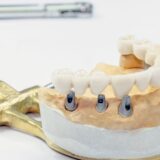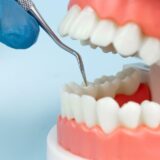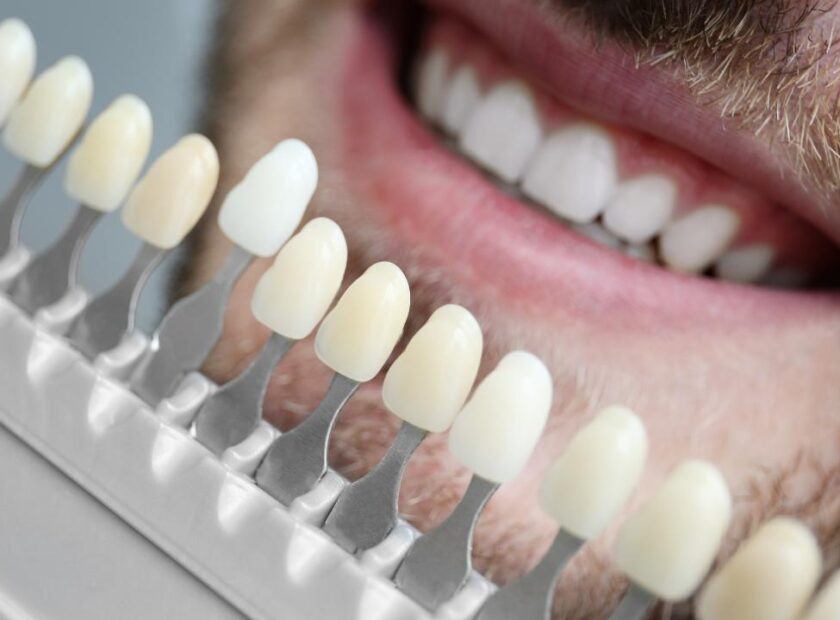Does teeth whitening damage enamel

Teeth whitening can cause temporary or permanent damage to tooth enamel and increase sensitivity. To minimize this risk, Choose our experienced dentist or dental professional.
Teeth whitening has become a popular cosmetic dental treatment in recent years. While it can effectively brighten your smile, it’s natural to question whether the process damages tooth enamel in the long run. The enamel is the outermost layer of the tooth, protecting it from damage.
When the enamel becomes weaker or wears off, it leads to tooth decay or sensitivity. We will answer the question, “Does teeth whitening damage enamel? ” And discuss various options for safe teeth whitening. So, let’s dive in!
Understanding Teeth Whitening
Teeth whitening products can damage the enamel, resulting in increased sensitivity. However, choosing a reputable, experienced dentist or dental professional can minimize this risk. Natural alternatives such as oil pulling, brushing with baking soda, and rubbing fruit peels on your teeth can be effective without damaging the enamel.
There are different types of teeth whitening options available to people. The effectiveness of teeth whitening treatments can vary depending on the individual’s teeth and chosen treatment. Factors such as age, genetics, and lifestyle habits such as smoking and drinking coffee can affect the outcome of teeth whitening. While some teeth whitening products can cause temporary or permanent damage to the enamel, choosing a reputable and experienced dentist or dental professional is essential to minimize this risk. There are also natural ways to whiten teeth without harmful chemicals, such as brushing with baking soda and hydrogen peroxide paste or rubbing banana, orange, or lemon peels. Overall, professional teeth whitening is safe and does not harm enamel.
The Role Of Enamel In Oral Health
Teeth whitening can cause damage to the enamel, leading to increased sensitivity or irritation of the gums if overused. Choosing a reputable and experienced dentist for the procedure is essential to minimize the risk to minimize the risk. Natural methods, such as oil pulling or rubbing banana, orange, or lemon peels on the teeth, are also to consider.
What is Tooth Enamel?
Tooth Enamel is the hard, outermost layer of the teeth that protects them from damage and decay. It is the hardest substance in the human body and covers the entire surface of each tooth, working together with the underlying dentin and pulp to keep the tooth healthy and functional.
Importance of Tooth Enamel
Tooth Enamel plays a vital role in oral health as it protects the teeth from various factors such as acid erosion, tooth decay, and sensitivity. It is responsible for helping to maintain the shape, strength, and color of the teeth, maintaining a healthy mouth, and enabling you to chew and speak properly.
Causes of Enamel Erosion
Various factors can cause Enamel Erosion, such as consuming highly acidic or sugary foods and drinks, grinding your teeth, tooth decay, and certain medical conditions such as acid reflux. Additionally, teeth whitening procedures such as over-the-counter products, if not used correctly, can also cause temporary or permanent damage to the enamel, leading to increased sensitivity.
To minimize the risk of enamel erosion, it is crucial to choose a reputable and experienced dentist or dental professional when getting your teeth whitened. You can also naturally whiten your teeth without using harmful chemicals by brushing your teeth regularly, oil pulling, brushing with baking soda and hydrogen peroxide paste, rubbing banana, orange, or lemon peels, and taking a diet rich in fruits and vegetables. Most importantly, visit the dentist regularly to maintain a healthy mouth and check your teeth for signs of enamel erosion.
The Connection Between Teeth Whitening And Enamel Damage
Teeth-whitening products can damage the enamel, leading to increased tooth sensitivity. Choosing a reputable and experienced dental professional is essential to minimize the risks. Natural remedies like oil pulling, brushing with baking soda and hydrogen peroxide, and incorporating fruits and vegetables into your diet can also help whiten teeth without harming the enamel.
Studies have shown that professional teeth whitening treatments do not harm the enamel.
Teeth whitening products can harm enamel as they may cause temporary or permanent damage, leading to sensitivity issues. Choosing an experienced dentist or dental professional when considering teeth whitening is vital to minimize the risk of damage to your enamel. In addition to professional teeth whitening, there are natural ways to whiten your teeth, such as brushing with baking soda and hydrogen peroxide paste or rubbing banana, orange, or lemon peels. Overusing teeth whitening products, such as Crest Whitestrips, can cause gum irritation and damage enamel. Potential side effects from professional teeth whitening treatments include teeth sensitivity and gum irritation, but most patients do not experience any significant side effects. While some side effects are possible, whitening treatment is generally safe on tooth enamel. Studies have shown that professional teeth whitening treatments do not harm enamel, but caring for your enamel is essential to maintaining healthy teeth.
Preventing Enamel Damage From Teeth Whitening
Teeth whitening treatments are becoming increasingly popular, but there are concerns regarding whether they cause any harm to the tooth enamel. Enamel damage can cause increased sensitivity and other dental issues. To ensure the safety of teeth whitening, it is essential to choose safe and reliable teeth whitening products. A pre-whitening dental exam is also recommended to ensure no underlying dental issues may cause harm during the treatment. During the whitening process, following the instructions carefully to avoid any damage to the enamel is essential. In addition to teeth whitening, natural methods such as brushing with baking soda and hydrogen peroxide paste, eating a diet rich in fruits and vegetables, and regular dental check-ups can help maintain a healthy white smile.
Alternative Ways To Whiten Teeth Without Damaging Enamel
Teeth whitening treatments using harmful chemicals can damage enamel, leading to increased sensitivity. To minimize risks, always choose a reputable and experienced dental professional.
Here are some alternative ways to naturally whiten teeth without damaging enamel:
- Brush teeth regularly
- Try oil pulling
- Brush with baking soda and hydrogen peroxide paste
- Rub banana, orange, or lemon peels
- Eat a diet rich in fruits and vegetables
- Go to the dentist for professional cleaning and polishing
Using Crest Whitestrips, which contains PVP and carbomer, is generally safe for teeth enamel. However, overuse can cause gum irritation and enamel damage. Teeth whitening may cause teeth sensitivity and gum irritation, but most patients do not experience any notable side effects when done professionally.
Studies have shown that professional teeth whitening is safe and does not damage enamel. Always consult your dental professional to determine the correct teeth whitening treatment.
What To Do If You Have Enamel Damage From Teeth Whitening
Teeth-whitening products have the potential to damage tooth enamel and increase sensitivity. To minimize the risk, it is essential to select a reputable dentist or dental professional. Alternatively, you can whiten teeth naturally without harmful chemicals and adopt a diet rich in fruits and vegetables.
Professional teeth whitening does not harm enamel, but taking care of your teeth is still important.
Are teeth whitening harmful to enamel?
Yes, whitening products can cause temporary or permanent damage to the enamel, leading to increased sensitivity. Choosing a reputable and experienced dentist or dental professional is crucial to minimize this risk.
How can you whiten teeth without damaging enamel?
Here are some natural ways to whiten teeth without the use of harmful chemicals:
- Brush your teeth regularly
- Try oil pulling
- Use a baking soda and hydrogen peroxide paste
- Rub banana, orange, or lemon peels on your teeth
- Eat a diet rich in fruits and vegetables
- Go to the dentist
Does Crest whitening destroy enamel?
No, the PVP and carbomer used in Crest Whitestrips are generally safe, but overuse of these products can irritate the gums and damage enamel.
What are the side effects of teeth whitening?
The potential side effects of teeth whitening include teeth sensitivity, gum irritation, and ineffective results. However, most patients do not experience any notable side effects from professional teeth whitening, as the dentist can monitor the process and perform treatment in a way that minimizes risk.
Will teeth whitening damage tooth enamel?
Studies have shown that professional teeth whitening does not harm enamel. However, thin enamel is still possible, making it more susceptible to damage. Practicing good oral hygiene and seeing your dentist regularly is essential to prevent enamel damage in the future.
Frequently Asked Questions On Does Teeth Whitening Damage Enamel
Is Teeth Whitening Harmful To Enamel?
Teeth whitening can cause damage to the enamel, leading to increased sensitivity. Choosing a reputable dentist or dental professional is essential to minimize this risk. However, natural ways to whiten teeth without damaging enamel include oil pulling, brushing with baking soda and hydrogen peroxide, and eating a diet rich in fruits and vegetables.
Overuse of whitening products like Crest Whitestrips can irritate gums and damage enamel. Most professional teeth whitening does not harm enamel but can increase surface roughness and porosity.
How Can I Whiten My Teeth Without Damaging Enamel?
To whiten your teeth without damaging the enamel, choose natural ways like oil pulling, brushing with baking soda and hydrogen peroxide paste, rubbing banana or lemon peel, eating a diet rich in fruits and vegetables, and going to a reputable dentist or dental professional for professional teeth whitening.
Overusing whitening products can cause sensitivity and damage to enamel, so choose wisely. Professional teeth whitening is safe and does not harm enamel.
Does Crest Whitening Destroy Enamel?
Overuse of Crest Whitestrips may irritate the gums and damage enamel. While most professional teeth whitening treatments are safe for enamel, some patients may experience side effects like sensitivity or gum irritation. Choosing a reputable dental professional and following their guidelines is essential to minimize risk.
Natural methods like oil pulling or rubbing fruit peels can also help whiten teeth without using harmful chemicals.
Conclusion
Teeth whitening is whether it can damage tooth enamel. While some whitening products, if improperly used, can cause damage to the enamel, it’s important to note that professional teeth whitening performed by reputable and experienced dental professionals is safe. However, it’s best to consult your dentist to determine the best course of action to avoid any risks to your dental health.
Remember, a brighter smile should not come at the expense of healthy teeth.




